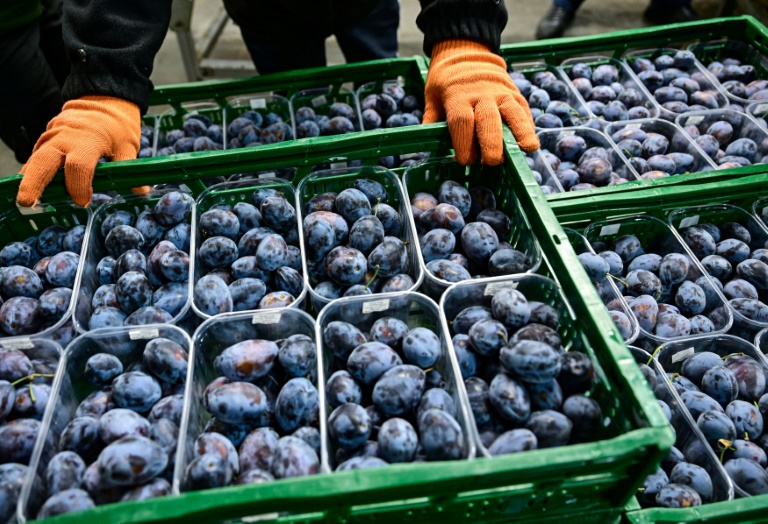In Moldova, a nation of 2.6 million nestled between Ukraine and Romania, farmer Stefan Bitlan has transitioned his business from dependability on Russian markets to exporting plums to the European Union (EU). During his inspection of plums set to be shipped to Germany, Bitlan expressed the challenges of this change yet emphasized the importance of EU integration, a move driven by geopolitical shifts stemming from Russia’s invasion of Ukraine. As Moldova prepares for a significant referendum on EU membership, a decision that is strongly advocated by President Maia Sandu, Bitlan’s story reflects the broader shift in the country’s agricultural landscape. The Romanian connection signifies a hopeful new alliance, as Moldova seeks economic viability and stability through European integration.
Moldova’s fresh start is epitomized by its plum industry, which has experienced significant growth in 2023, emerging as the largest plum exporter to the EU. The current government capitalizes on this agricultural success, encouraging farmers to view plum exports as a symbol of Moldova’s progress toward EU alignment. Under President Sandu’s leadership, Moldova applied for EU membership soon after her election in 2020, viewing this effort as crucial to the survival of a country plagued by poverty and unstable relations with its former Soviet overseer. Faced with diminishing ties to Russia, the Moldovan government emphasized agricultural exports as a vital lifeline, with plums being one of seven major products benefiting from EU trade concessions following Ukraine’s 2022 conflict.
In 2023, Moldova produced a record 150,000 tons of plums, with 60,000 tons successfully entering the EU market, making up a significant portion of the country’s fruit exports. These plums, cherished for their quality, netted around €35 million (~$38 million) for local producers, benefiting farmers like Bitlan, who accounted for over 10% of Moldova’s plum exports. Beginning his EU-focused export strategy in 2014, Bitlan acknowledged the crucial shift away from reliance on Russian markets, a transition motivated by the harsh realities of trade embargoes levied by Moscow in response to Moldova’s European aspirations. The rigorous standards of the EU market posed challenges but ultimately led to soaring revenues, demonstrating the economic viability of integrating with Europe.
The benefits of EU ties are not limited to plum exporters. In fact, nearly two-thirds of Moldovan exports now flow to the EU, with exports doubling over the last decade. The diversification of markets is significant, with Moldova currently exporting its produce to approximately 50 different countries. A recent survey reveals a strong inclination among business owners toward EU integration, reflecting a shift in national sentiment. The percentage of Moldovan exports going to Russia has plummeted from more than 60% two decades ago to just 3.6%, with many in the business community attributing this turnaround to the aggressive policies of Russian President Vladimir Putin. The desire for stability and prosperity has fueled the country’s pivot toward the EU, with plums hailed as a defining symbol of this shift.
Despite the benefits, the path toward EU integration is not unanimously accepted within Moldova. Pro-Russian factions have rallied against the government’s approach, featuring protests that express concern over the perceived risks to the local agricultural sector. Demonstrations have included provocative actions aimed at the Ministry of Agriculture, where protestors conveyed fears that pro-EU policies might spell doom for Mughal agriculture. This divisive sentiment illustrates the complexities of Moldovan politics, revealing ongoing friction between those who support a European future and those who cling to ties with Russia.
In contrast to the skepticism from some political groups, many agriculture leaders underscore the potential for prosperity and stability through EU membership. Iurie Fala, head of Moldova Fruct, articulates an optimistic view of Moldova as emerging as a fruitful ‘orchard of the European Union.’ The commitment to enhanced cooperation with the EU not only signifies economic benefits for farmers and exporters but also sets the course for a broader national transformation. As Moldova casts its vote in the referendum, the future of the country’s alignment with Europe hangs in the balance, as both farmers like Bitlan and the Moldovan government navigate the challenging landscape of geopolitics and economic pressures, driven by an unwavering vision for a more prosperous future within the EU.

